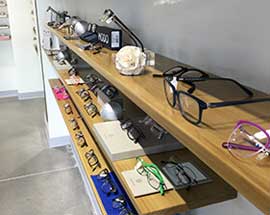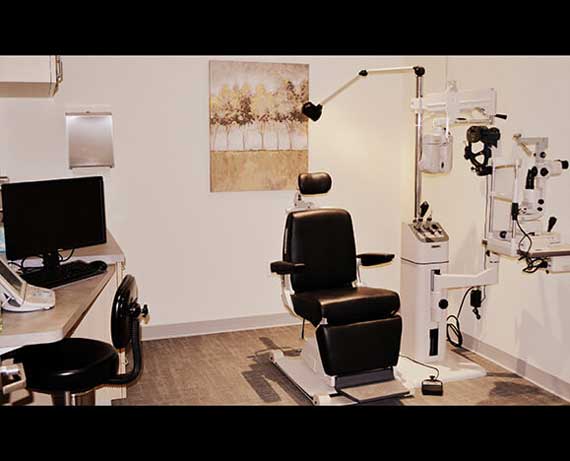The small area of the retina known as the macula is responsible for your visual acuity, helping you to read, drive, watch your favorite shows and even recognize faces. Unfortunately, the macula doesn’t always stay healthy. In fact, macular degeneration is the number one cause of vision loss in older adults.

Causes of Degeneration
Most commonly, degeneration of the macula is related to aging, but some research also shows genetic predisposition. Almost half of all cases of macular degeneration show a deficiency of the complement factor H gene. Variations of the complement factor B gene may also cause the development of the disease. Still more research shows that cells deprived of oxygen in the retina produce vascular endothelial growth factor, a gene that triggers new blood vessel growth. Too much of this gene can damage the macula and retina.
Symptoms of Degeneration
In most cases, age-related macular degeneration is a slow loss of vision with no pain, but in rare cases, vision goes very suddenly. There are several other symptoms of macular degeneration, including fuzzy or otherwise distorted vision and shadowy areas in your line of vision.
People Who Develop the Disease
Degeneration of the macula most often occurs in older people, especially females and Caucasians. Some risk factors make you more likely to develop the disease.
- Smoking
- Family history of the disease
- High blood pressure
- Obesity and inactivity
- Having light-colored eyes
- Overexposure to sunlight
- High levels of dietary fat
- Side effect of some drugs
Treatment of Macular Degeneration
There is no cure for age-related macular degeneration, but eye specialists can provide treatments to delay the disease or possibly improve vision. Treatment depends on the specific form of degeneration you have, but may include nutritional changes, FDA-approved drugs to stop abnormal growth of blood vessels and Photodynamic Therapy.
Macular degeneration is a serious disease and could result in total loss of vision if left untreated. If you have symptoms, schedule an appointment with an optometrist in Boise, ID, immediately.




